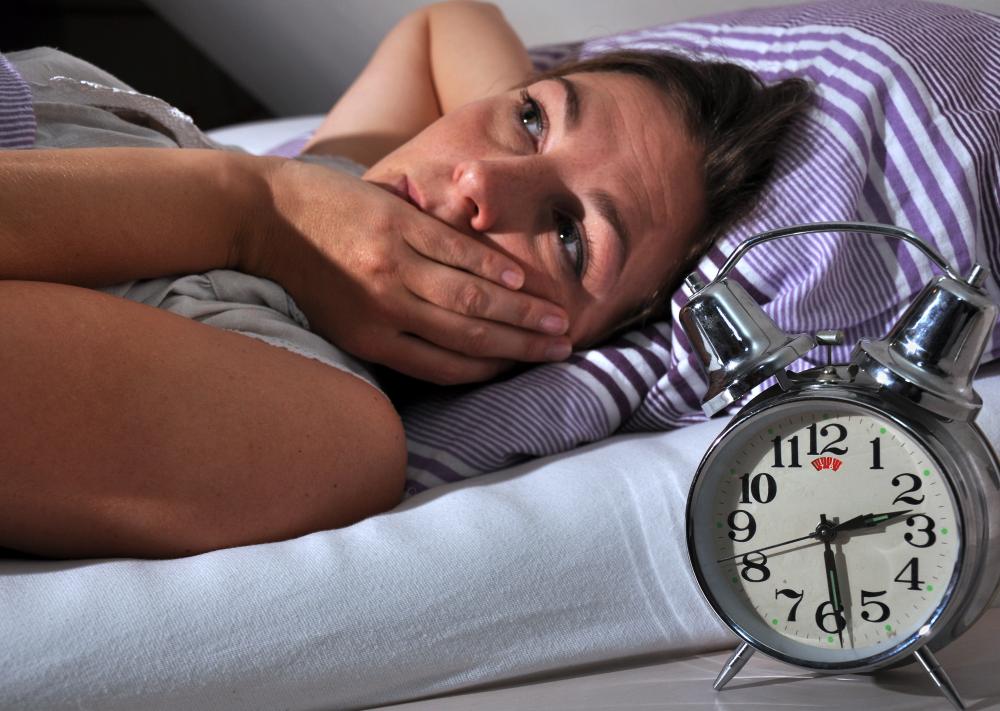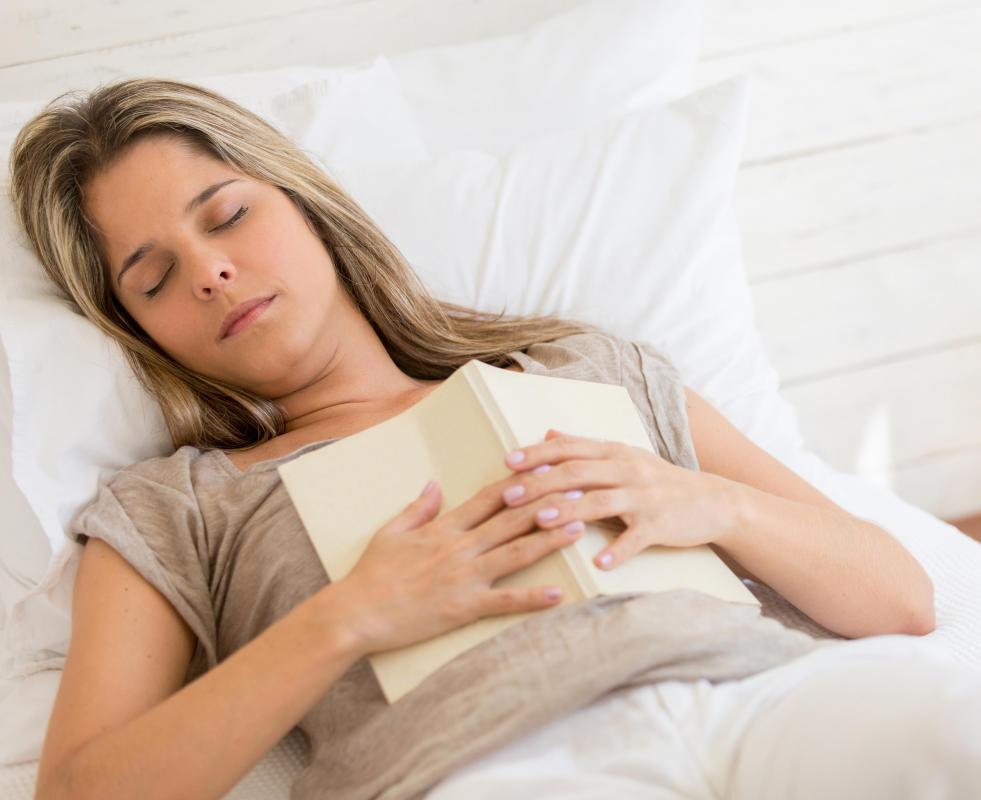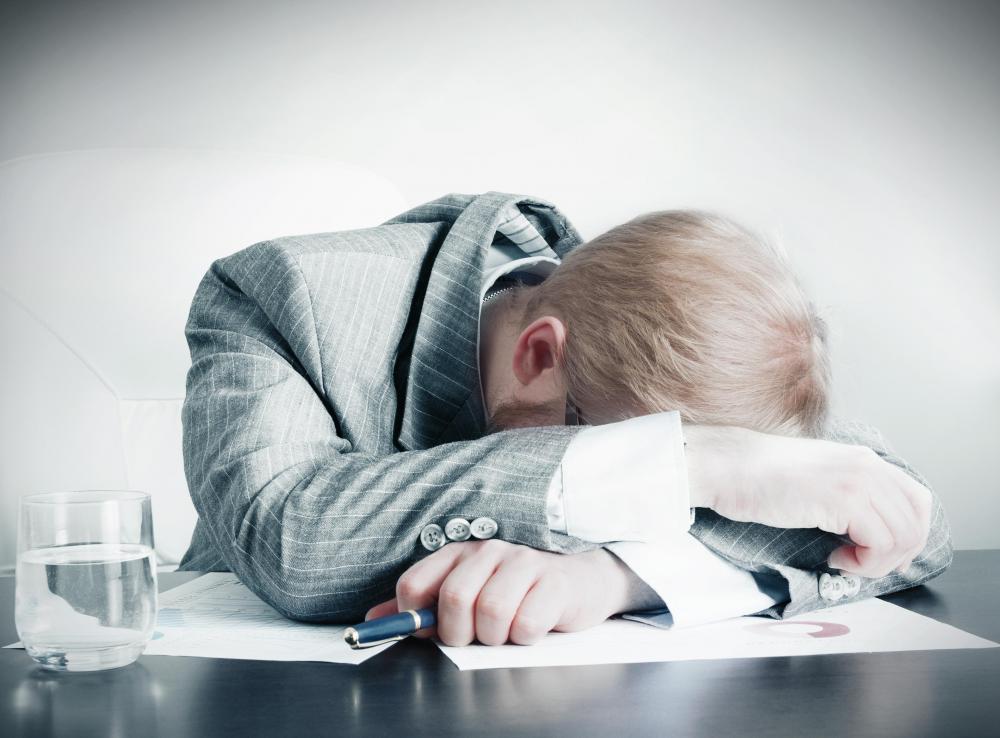At WiseGEEK, we're committed to delivering accurate, trustworthy information. Our expert-authored content is rigorously fact-checked and sourced from credible authorities. Discover how we uphold the highest standards in providing you with reliable knowledge.
What is Psychophysiological Insomnia?
Psychophysiological insomnia is a sleep disorder that causes inadequate nighttime rest. This is principally due to a person’s intense anxiety about getting enough rest, which makes falling or staying asleep difficult. For this to be considered a true disorder, it must occur regularly, so that sleep is often disrupted. The condition occurs in the absence of any other insomnia causes, but, over time, it may cause additional problems like depression. People often try to fix this problem on their own using sedatives or alcohol to promote sleep at night, and large amounts of caffeine in the day to combat sleepiness. These attempts to self-medicate coupled with continued anxiety merely exacerbate the issue.
The characteristic symptoms of psychophysiological insomnia are chronic poor sleep and strong anxiety about getting to sleep. The poor quality of the sleep tends to lead to feelings of exhaustion during the day. Other symptoms like depression, alcohol use or abuse, and caffeine overuse can also be present. Depression requires some investigation and it’s important to establish that it occurred after sleep problems began and not before, or it might be considered the principal insomnia cause, instead of secondary to psychophysiological insomnia.

Actually, diagnosis of this condition is often made by ruling out other psychological or physiological disorders that can result in sleep difficulties. When a patient presents with symptoms of poor sleep and extreme worry about it, he still might require sleep studies to eliminate causes like sleep apnea, restless legs syndrome, a lengthy history of depressive or anxiety disorders, and other causes. Patients may also be asked to think of when the problem started and when worry about sleep began to build. Often, there is an incident or a series of nights of poor sleep that created excessive worry, and over time the condition snowballed so that it was difficult to ever get enough sleep.

There are several potential treatments for psychophysiological insomnia. One of these is to work on sleep habits or sleep heath so that night and day behaviors are most conducive to sleeping. Among other things, eliminating the use of alcohol and caffeine is advised to improve sleep health. People might also learn some relaxation exercises.
Psychotherapy is often recommended, and the most common type used to treat this problem is cognitive behavioral therapy (CBT). Sometimes medications are prescribed to promote sleep, but only if the patient won’t abuse other substances. If strong depression is present, physicians might opt to treat this also, with antidepressants.

Treatment takes time because it’s difficult to recover from excessive worry and improve sleep habits. Patients may track their sleep levels and meet with doctors regularly to see if treatments are creating improvement. Doctors adjust recommendations accordingly.
Psychophysiological insomnia isn’t common, and it tends to only affect teens and adults. Women seem to suffer this condition at a higher rate than men. People who think they have this illness should report to physicians that loss of sleep seems most caused by worrying about it. This is a strong indicator of the condition.
AS FEATURED ON:
AS FEATURED ON:



















Discuss this Article
Post your comments